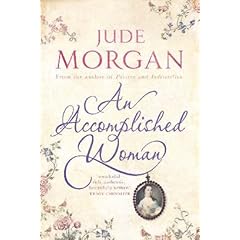Meanwhile, here's a sneak preview of novels from the UK list so far, set in my favourite periods:
January
M K Hume, Prophecy: Clash of Kings, Headline (novel about Merlin)
John Stack, Masters of the Sea, HarperCollins (latest in Roman naval series)
Mark Keating, The Hunt for White Gold, Hodder & Stoughton (second in 18th-c pirate series)
February
Christian Cameron, King of the Bosphorus, Orion (latest in Tyrant series set post-Alexander the Great)
James McGee, Rebellion, HarperCollins (Bow Street Runner goes on dangerous mission to Napoleonic Paris, 1812)
March
Robin Blake, A Dark Anatomy, Macmillan (murder mystery set in 1740 Lancashire)
R S Downie, Ruso and the River of Darkness, Penguin (latest in Roman sleuth series set in Roman Britain)
Russell Whitfield, Roma Victrix, Myrmidon (sequel to Gladiatrix, further adventures of a female gladiator in ancient Rome)
April
Patrick Easter, The Watermen, Quercus (crime novel set in 18th-c London Docklands)
Anthony Riches, Fortress of Spears, Hodder & Stoughton (latest in Roman army series set on Hadrian’s Wall, 3rd-c AD)
Imogen Robertson, Island of Bones, Headline Review (Cumbria 1783: one body too many found in a tomb leads to discovery of a past that won’t stay buried)
May
Justin Hill, Shield Wall, Little, Brown (tumultuous events from the death of Ethelred the Unready to the Battle of Hastings, first of a series)
M C Scott, Rome: The Coming of the King, Bantam (second in series takes spy to Judea in pursuit of man bent on destroying the Roman province, 1st-c AD)
Stella Tillyard, Tides of War, Chatto & Windus (two young women in London and Spain during the Peninsular War)
Christopher Wakling, The Devil’s Mask, Faber (young Bristol lawyer uncovers deadly secrets in the aftermath of the abolition of the slave trade)
June
Elizabeth Chadwick, Lady of the English, Sphere (struggle for the English crown between Henry I’s daughter Matilda and his widow Adeliza who is Matilda’s stepmother)
Diana Gabaldon, Lord John and the Scottish Prisoner, Orion (latest in 18th-c crime series)
Ben Kane, Soldier of Carthage, Preface (first in Punic War series)
Kate Quinn, Daughters of Rome, Headline (2 sisters in Rome in AD69, Year of the Four Emperors)
Julian Stockwin, Conquest, Hodder & Stoughton (latest in naval series set during Napoleonic Wars)
And not one, but two novels about Hereward the Wake:
Stewart Binns, Conquest, Penguin, February
James Wilde, Hereward, Bantam (first in series), June
















